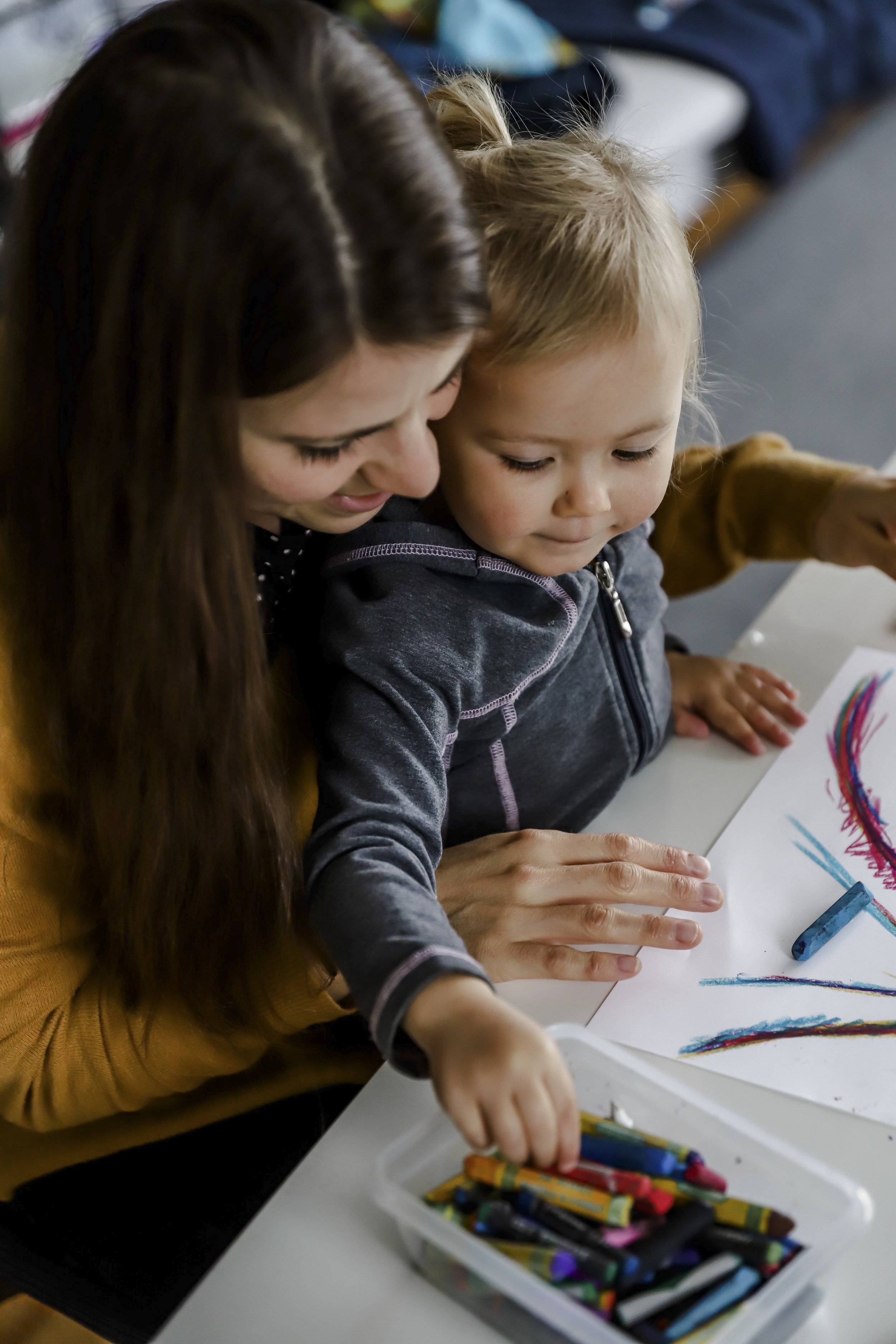Welcome Package: Expressive Art Therapy Client Kit for Moms
Expressive art therapy is better (but I’m biased) then talk therapy for moms because it helps you process and honour:
the stuck, and hard parts of motherhood when words don’t quite cut it
the bittersweetness of being a mom
the hard and the joy
the pain and the growth
the resentment and the resilience
What is Expressive Art Therapy?
Expressive art therapy, also referred to as "art as therapy" or "therapeutic art," is a transformative approach to healing and self-discovery. It integrates mindfulness, visual arts, movement, music, writing, and other creative modalities.
P.S. There is no previous art experience required.
“Expressive arts therapy uses various arts—movement, drawing, painting, sculpting, music, writing, sound, and improvisation—in a supportive setting to facilitate growth and healing. It is a process of discovering ourselves through any art form that comes from an emotional depth. It is not creating a “pretty” picture. It is not a dance ready for the stage. It is not a poem written and rewritten to perfection.”
Why art as therapy for moms? Because the path to motherhood has changed you.
You want to feel more grounded and connected to your authentic self.
You long to create a life you don’t have to escape from.
You want to feel intuitive and connected to your knowing
You want to recognize your body sensations when you feel triggered.
You aren’t quite sure how to regulate and truly process your emotions.
This is a supportive space where you can share your experiences without judgement or unsolicited advice. Through creative expression, such as art and music, we'll explore your emotions and build your resilience, while also cultivating mindfulness, real self-care, and self-compassion practices.
So, although it might be initially nerve-wracking, in the end, expressing yourself with creativity will open up new possibilities, and perspectives and turn the chaos into calm (aka. help you feel alive, vibrant and more chill as a mother).
It’s tough to admit when you feel lost, stuck or invisible. I get it.
About Kayla Huszar, your creative counsellor + coach:
I am a registered social worker using expressive art therapy supporting you through the highs and lots of motherhood with mindfulness and creativity.
Certifications and Trainings:
Bachelors Of Social Work
Prairie Institute of Expressive Art therapy
Level 1 + 2 Expressive Art Therapy Certificates
Postpartum Support International
Perinatal Mental Health Certificate (PMH-C)
Certified Fair Play Facilitator
Canadian Perinatal Mental Health Trainings
IN PROGRESS: Canadian Certified Perinatal Mental Health Therapist (CC-PMH)
Booking your appointment
Go to the website or the Better app and look at the available appointments*
Request an appointment
*Hours of availability: So that you get the best version of me, I protect my energy, capacity and burnout by mainly working around the school schedule, and most days, the hours of availability are 9am-3pm MST. I am available and take appointments outside this window upon request on a first-ask, first-serve basis.
1:1 counselling sessions go like this:
Arriving
Easing into the session with an update from you, transitioning into a question, topic or theme you want to explore.
Moment of stillness, mindfulness or meditation (guided or unguided).
Creating an art piece or other creative self-expression then journaling about the process.
Debrief of what was just created, how you feel, and any ah-ha moments or takeaways.
"My sessions with Kayla are different from other counsellors I have seen; she cares, listens & she knows me. This type of work is invaluable in a society that pressures women to be perfect. She invites you to be vulnerable while exploring yourself in a nonjudgmental environment & safe way. During every session, I learn something new about myself.
She often has an inspiring quote, piece of wisdom, song to listen to, or book to explore to help with whatever I am struggling with.
Thank you for holding this space for women."
Preparing for your virtual expressive art therapy session:
Reflect on a question or list of topics or themes you would like to focus on during the session.
Make sure you have a comfortable, quiet space to focus on the session with minimal distraction. You don't have to be at a desk or table, squaring your shoulders and looking straight at the camera. I encourage you to use a space and posture that feels nourishing.
Note: I am no stranger to kids and babies being around during sessions.
Gather your art materials before the session: Art journal, paper, pens, markers, pastels, watercolours, and/or collage materials. If you don't have access to materials, let me know, and I will mail you some.
Click join meeting.
My credo: the intentions that guide therapy with me
Session Fees + Payment
Hourly rate is $195
Payment is expected by the end of the session.
You can claim this fee on your benefits under “Registered Social Worker” for Saskatchewan and Alberta residents and/or on your income taxes.
Payment plans and sliding scales are available; please discuss this with me before booking.
Payment plan: pay the full price in increments (50% at time of booking and 50% on date of session).
Sliding scale: paying a rate based on your household income.
As a social worker, I respect the fact that people have different levels of access to services. Recently, I came across the concept of investment versus hardship when it comes to accessing services.
If you want to go to therapy because it will improve your life, and your basic needs* are already met, but you'll have to adjust your disposable income** to afford it, it's considered an investment. This might mean giving up ordering food, buying coffee, or getting new clothes or lashes, but if these adjustments are worth it to you, then it's a good investment.
However, if going to therapy will actually harm your financial situation, such as having to choose between paying rent or buying food versus going to therapy, then that's considered a hardship. In this case, you should be able to access services at a lower cost.
It's important to recognize the difference between investment and hardship. The sliding scale rate is determined by your annual household gross income, which is the sum of all household earners' wages, salaries, profits, compensations, and other forms of earnings before any deductions or taxes. The sliding scale is based on an honour system, so you do not need to prove your income.
Up to $50,000 = $105/hour
Between $51,000 and $75,000 = $125/hour
Between $76,000 and $100,00 = $145/hour
Between $101,000 and $150,00 = $195/hour
Between $151,000 and $200,00 = $245/hour
Between $201,000 and $300,00 = $295/hour
$301,000 + = $395/hour
* Basic needs are food, shelter, healthcare, and transportation.
** Disposable income is what's left after paying for these basics, and can be spent on non-essentials like coffee, movies, lashes, nails, new clothes, and books.
What’s next?
Sign up for a consult call.
Book your 1st session.
Calm the chaos of motherhood







